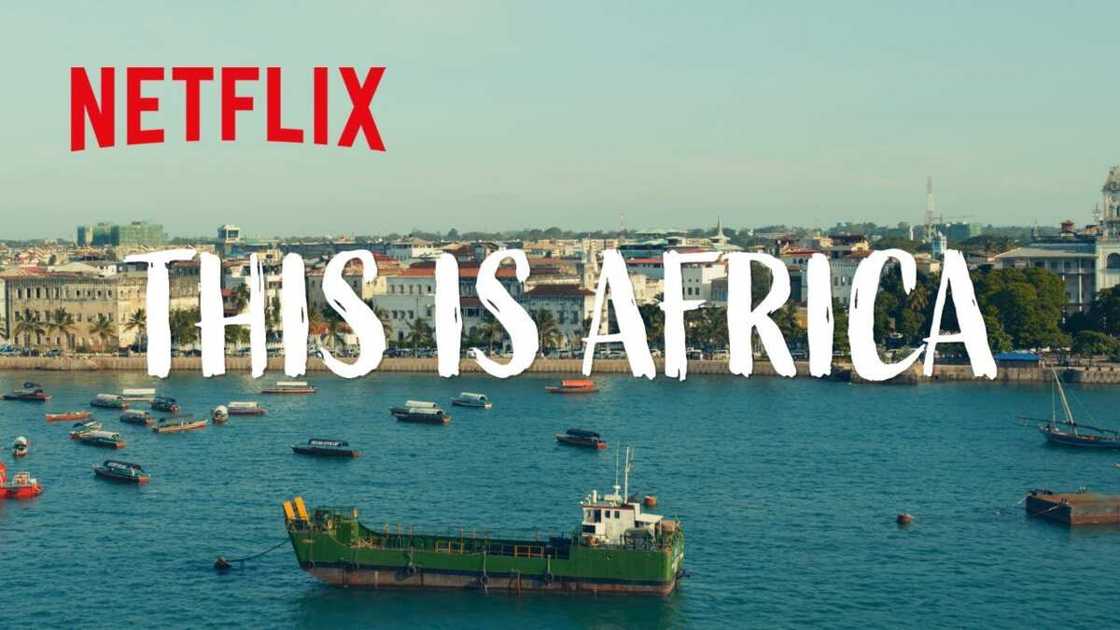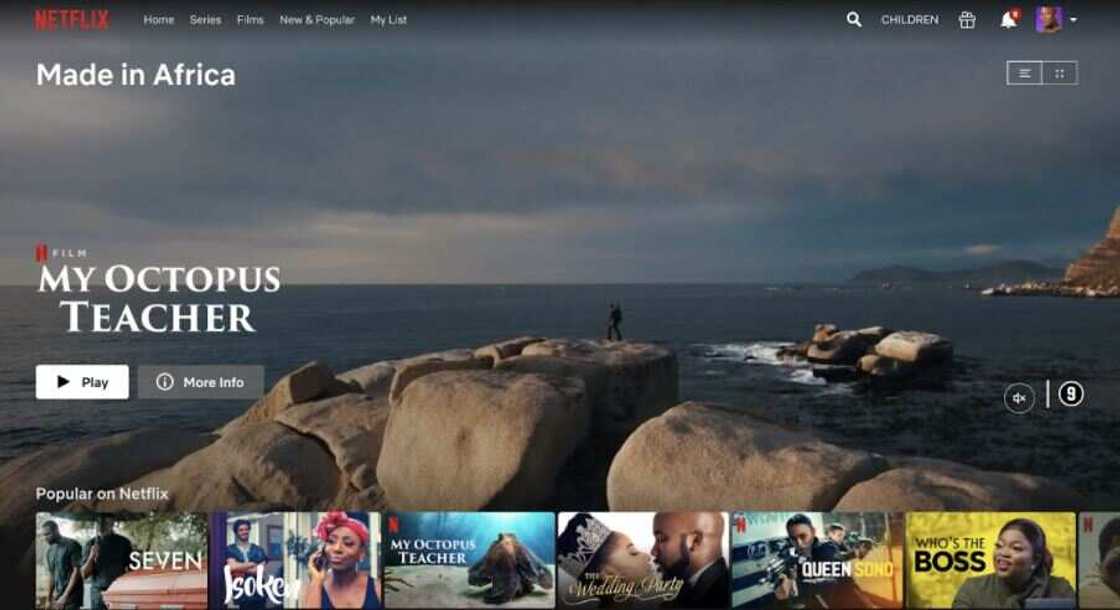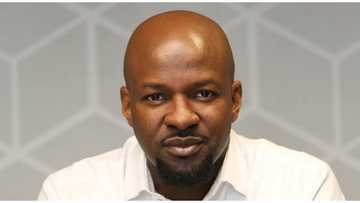Africa Day: Celebrating Africa’s Unfolding Film Story With Netflix
With a population of over 1.2 billion people, which approximately accounts for 15% of the world’s population, Africa provides a plethora of opportunities as a potential melting pot for development across industries. Yet there is an abundance of invaluable manpower— both physical and intellectual, that’s left untapped across all industries and the creative industry is no exception. In fact, the assumption that the creative industry in Africa presents the largest sector for exponential growth and revenue if adequately managed and supported wouldn’t be so farfetched and this isn’t unnoticed. Presently when it comes to entertainment, the continent is building legacies that showcase the diversity and uniqueness— bringing Africa to the world, and there’s no better way to commemorate Africa Day than to highlight feats in the African film industry

Source: UGC
According to the Statista 2021 report, Nollywood, Nigeria’s film industry, represents the most valuable indigenous cinematography production in the West African region. The clear potential of Nollywood is seen by the Nigerian government’s cumulative grant of $1.26 million through the years 2011 and 2017.
Business opportunities in Nollywood include the opening of cinemas in underserved cities, the use of technological platforms to enhance distribution e.g. Iroko TV and Netflix, training and capacity building for cinematography, scriptwriting and directing, and movie production equipment. According to The International Trade Administration, Nollywood employs about a million people and generates over US$7 billion for the economy, accounting for 1.4% of GDP according to IMF reports. Nigeria produces around 2,500 films a year with a projection of US$22 million by 2021 for total cinema revenue. Total music revenue in Nigeria is estimated to rise at a 13.4% CAGR to US$73 million in 2021.
In 2017 a total of 222 films were released in South Africa, with 23 of those films originating from the nation. In South Africa, Statista predicts that Box office revenue will grow from just over 1.3 billion rands in 2018 to 1.46 billion South African rands in 2023.

Read also
Top 10 African countries with best economic opportunities for women 2021, Nigeria is not on the list
Kenya, the East African suburban nation with a population of more than 54 million people, has had a vibrant film industry for decades making it an important location for filmmaking. From the comedy romance Disconnect featuring local talents like Brenda Wairimu and Nick Mutuma to Sincerely Daisy, a coming of age story about a young aspiring actress, the Kenyan film industry has showcased the country’s beaches, exciting capital, and quirkiness of its locals through indigenous stories that are relatable and produced by top-notch creatives that churn out quality films.
Although the industry in Africa, does not earn as much in comparison to their international counterparts i.e Hollywood and Bollywood, the progress thus far is a testament to the tenacity of African creatives who have developed the industry in the midst of copious limitations- especially lack of technology, funding and structure - but there is hope. In 2020, Afreximbank – the African Export-Import Bank – announced a $500M credit facility to support African cultural and creative products over the next two years. Additionally, the Central Bank of Nigeria in partnership with the Banker’s Committee announced an N22.9bn fund for entrepreneurs and investors in the creative and IT sectors in May 2019.
In February 2020, Nigerian’s were introduced to ‘Netflix Naija’ a Twitter handle that outlined the next steps in Netflix’s bid to showcase their increased investment in Nigeria’s film industry, Nollywood. Netflix’s presence means increased visibility for African titles and most importantly reduce the adverse impact of movie piracy in Nigeria.
Since its arrival in 2020, Netflix has partnered with production companies like Nemsia Studios, Trino Motion Pictures, Ebony Life and Ink Blot to begin utilizing the $15 billion fund allocated to producing original African stories.
In 2020, Mo Abudu, Nigeria media mogul and owner of production company- Ebony Life Films, announced a multi-title deal with Netflix. This partnership, the first of many, birthed the Afro-Impact film Olòtūré, directed by Kenneth Gyang, which aired in October 2020 and sat on Netflix’s most-watched list within days of its release.
Following Òlòtūré’s success, Nigerians can expect more projects from the Netflix and Ebony Life partnership, a sequel to the bestseller, Chief Daddy, directed by Niyi Akinmolayan, that hit the big screens in 2018 is one of the projects. The film grossed more than N350,000,000 which places it on the top 5 highest-grossing films in Nigerian theatres through time.
2020 gave Nigerians, Citation, a film directed by Kunle Afolayan and produced by Golden Effects Pictures. The coming-of-age story stars newcomer Temi Otedola with Haitian-American actor, Jimmy Dean-Louis alongside Nollywood household names Joke Silver, Ini Edo and Gabriel Afolayan. The film set the pace for Kunle Afolayan’s three-title partnership with Netflix which was announced in March 2021. The films will span across the historical drama, folklore fantasy, and character drama genres and the first film in production is the adaptation of Seffi Atta’s Swallow which commenced on-site production at the end of March 2021.
In South Africa, Netflix is also showcasing the diversity of creatives in Africa. The series, Blood and Water, premiered in 2020, sat on the worldwide most-watched list upon its release. Earlier this year, My Octopus Teacher earned The Best Documentary Feature at the 2021 Academy Awards, earning the Nation increased recognition for quality storytelling. The film, directed by Pippa Erlich and James Reed, is a powerful Netflix production that highlights its strengths across all genres of well-made films and life-affirming stories.
Partnerships with production companies and established filmmakers are one route to embracing and showcasing African stories. Another is discovering and finding untapped talent. In November 2020, the Netflix Episodic Content Development Lab for creative African writers in Nigeria, South Africa, and Kenya began receiving submissions. The Lab aims to unearth exclusive original African story ideas in partnership with Realness Institute- an organization interested in taking authentic diverse local stories to the world.
The Episodic Content Development Lab is an innovative development that will host creative African writers that successfully emerge from an air-tight selection process; they will earn $2,000 monthly to join the program and participate full-time in three months- June and September 2021, of intensive creative thinking and story development.
Diversity is also something that African creatives have begun to embrace. Diversity in content is not just about increasing the stories told by Africans, it is also about ensuring that the creatives engaged in productions are a blend of different types of people. In Nigeria, as well as around the world, a major diversity shortcoming is the involvement of women in diverse roles. Statistics by the International Labour Organization, updated in 2018, show that in the global labour force the participation rate for women is close to 49% while it’s 75% for men.
In partnership with Netflix, the Nigerian film industry that has experienced many “female firsts”, the production of the movie Lionheart in 2018, produced by Chinny Onwugbenu and directed by Genevieve Nnaji, earned the accolades of “First Netflix original film ever produced in Nigeria”, and “first time Nigeria had submitted a film to the Oscars”. With this continuous desire to tell more stories, Netflix has brokered strategic partnerships with female film moguls like Mo Abudu.

Source: UGC
Additionally, in line with the 2021 International Women’s Day theme, #ChoosetoChallenge, Netflix announced a Creative Equity Fund that would go towards programs that would nurture, develop and uplift women in the global entertainment industry. The fund will dedicate $20 million annually over the next five years to ensuring that underrepresented communities are equipped to create bespoke Netflix programs as well as identify, train and provide job placement for up-and-coming talent globally, especially in Africa.
According to the award-winning director, Kemi Adetiba,” I’m glad to see Netflix showing support for women in my industry. Hopefully the fun will help deprived voices, in this case, women get the same recognition and chance to be heard in this industry”. Interestingly, the Director announced in 2020 that her much-anticipated movie sequel, King of Boys 2, will be a Netflix Original film.
Giving Africans a platform to create and showcase their talent is Netflix’s mantra as it fosters creative partnerships with entertainment talent. While film directors, producers and actors are a typical partnership, Netflix shook things up by partnering with the Ikorodu Bois on an Oscar weekend campaign in April 2021. The Ikorodu Bois are three siblings that are famous for remaking multimillion-dollar music videos and movie trailers with household items. This campaign landed the Nigerian kids a debut on a New York Times Square billboard.
With the ever-improving nature of the African film industry and the increase in calibre content available for viewing, Africa Day can be better celebrated by savouring groundbreaking titles. Netflix, through the Made in Africa movie collection, has made the decision to savour African stories -on such a befitting day, much easier. The reality that good stories exist in different nooks of the earth and Africa is a melting pot for them, is apparent now more than ever. The cultural diversity in countries like Nigeria makes it clear that there is much to explore in the creation of Nollywood content. Netflix has partnerships in the works, but that is only the beginning. As more talent emerges and more partnerships are locked in, Nigerian talent will be showcased across the nation, celebrated within the continent, and enjoyed by people around the world – taking Africa to the world.
[Sponsored]
Source: Legit.ng






